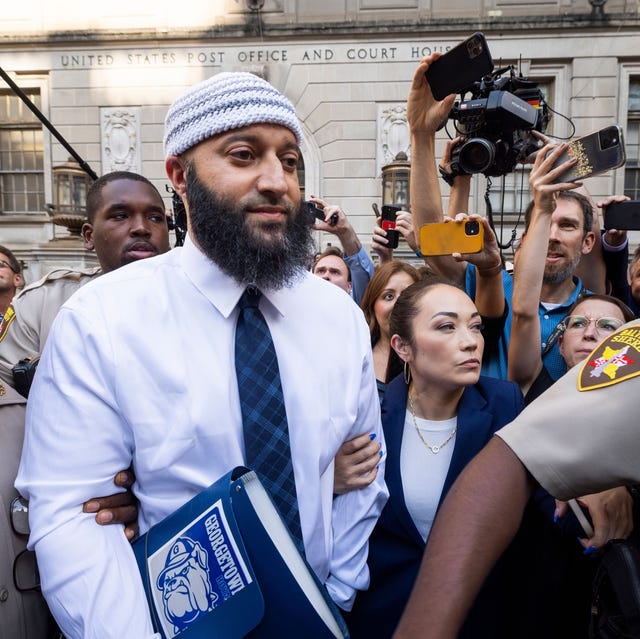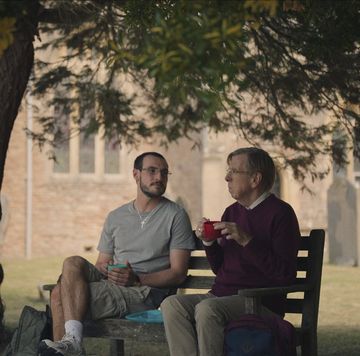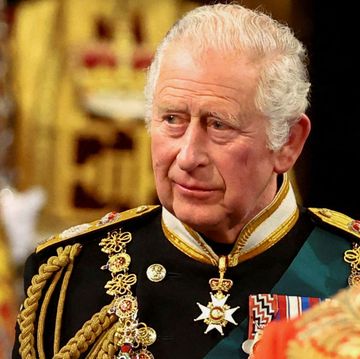After 23 years behind bars, Adnan Syed is a free man. On Tuesday, prosecutors dropped the charges against the 41-year-old from Baltimore, who was found guilty of murdering his ex-girlfriend Hae Min Lee back in 1999. He was released last month after Baltimore Circuit Judge Melissa Phinn overturned his conviction. "In the interests of fairness and justice," she declared, the decision was vacated so that a new trial could address all of the information that has come to light over the years. Instead, prosecutors chose to drop the case against Syed.
The podcast Serial, hosted by investigative journalist Sarah Koenig, first raised awareness for his case back in 2014. Along with pioneering the modern true crime genre, the series spotlighted a lot of questions regarding the lack of integrity surrounding his conviction. Despite efforts from Syed's legal defence, the court turned down almost every request until a new DNA test just this past March proved to be inconclusive. For his part, Syed has also maintained his innocence over his two decades behind bars.
Last month, Adnan Syed was unshackled in the courthouse and given a GPS monitor should prosecutors request a new trial. According to the Baltimore Sun, they had up to 30 days to decide whether or not they wanted to drop the first-degree murder charge against Syed. A spokeswoman for the Baltimore state’s attorney’s office later confirmed with The New York Times on Tuesday that the charges against Syed were dropped. Previously, prosecutors argued that Syed strangled and killed his ex-girlfriend when she was just 18 years old. He was 17 at the time of his arrest and has spent the last 23 years incarcerated at the Patuxent Institution state prison in Jessup, Md.
Two "alternative suspects" have been known since 1999, according to state prosecutors, with one even threatening her before her death. One of the suspects was a known serial rapist, but information about him was not provided to Syed's defence before his original trial. Ms. Lee's car was also found behind the house of one of the other suspects' close family members. Additionally, cellphone data placing Syed near the scene of the crime has since proved to be unreliable. "Given the stunning lack of reliable evidence implicating Mr. Syed, coupled with increasing evidence pointing to other suspects, this unjust conviction cannot stand,” said Erica Suter, Syed’s lawyer. "This was so in 1999 when Mr. Syed was a 17-year-old child. It remains so today."
It's not clear what Syed plans to do following his release, but he was studying for a bachelor's degree from Georgetown University as a part of the prison's scholars program. However, for Ms. Lee's family, the decision to vacate his 1999 conviction has only, it seems, added more frustration and confusion. According to The New York Times, her brother, Young Lee, said he felt "betrayed" and "blindsided" by the motion, and that the indecisiveness of the case is "killing me and killing my mother."
"Whenever I think it’s over, and it’s ended, it always comes back," he told the court over Zoom. "This is not a podcast for me. This is real life—a never-ending nightmare for 20-plus years."
Josh Rosenberg is an Assistant Editor at Esquire, keeping a steady diet of one movie a day. His past work can be found at Spin, CBR, and on his personal blog at Roseandblog.com.













